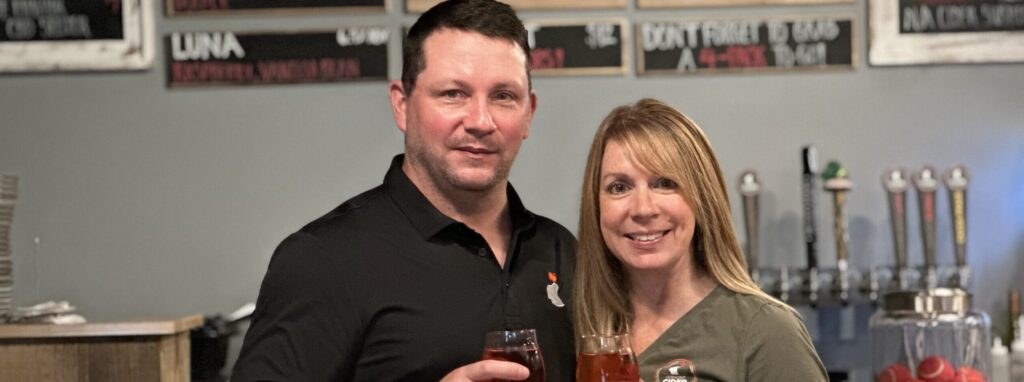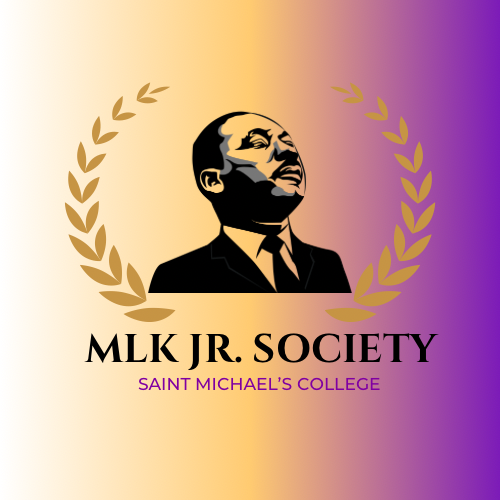New Model UN Club making name beyond campus
A recently vibrant and growing Model United Nations Club at Saint Michael’s College played the role of Slovenia and held its own against competitors from top colleges during a nationally well-established Model UN Conference in Philadelphia the second weekend of November.
Five men from the club made the long driving road trip for a Thursday-Sunday conference sponsored by University of Pennsylvania, and now are preparing for a prestigious conference at Harvard in February. This week they were pleased to learn they’ve been awarded funding for that trip from the Saint Michael’s Academic Affairs Office, says Asah Whalen — a junior political science major from Marshfield, VT, who has been a key motivating force for Model UN at Saint Michael’s since his first year.
Whalen, who felt satisfied with the mark he made in his committee at the recent conference, explained that Model UN became a formally recognized club by the St. Mike’s Student Association last year, although he and others met informally around their shared interest the year before that. Perhaps 20 to 25 students, mostly political science or international relations majors, have been attending weekly meetings Thursdays this year in a St. Edmund’s lecture hall.
Large general assemblies like the Philadelphia conference replicate modern real-world debates, though the campus meetings sometimes take on historical scenarios like pre-World War II Europe, he said. The real action at major conferences is in the subcommittees where delegates can dig down on specific issues and propose resolutions.
Other Saint Michael’s students making the trip this past weekend were Alec Medine ’18, Gilmonton, NH (history major), Ryan Lawrence ’20, Killingworth, CT (political science), Shane Coughlin ’21, Hudson, NH (political science) and Matt Narsiff,’18, Medford, NJ (political science), whose family hosted the group since they live near Philadelphia.
Whalen said participating teams are only ranked among the top three or so, although notes from committee moderators (in this case from UPenn) give a sense of relative achievements, and the St. Mike’s group felt good about those this time.
“There really isn’t a national Model UN organization, so at the collegiate level it’s mainly centered on Ivy League schools, but other interested schools can sign up and participate,” said Whalen, who last year attended a non-Ivy conference at New York University in Manhattan. He said on average, perhaps 50 or more colleges and universities send delegations to such events, with an average delegation of about 10 students — though some colleges such as Harvard might bring 30 delegates. Attendees at the recent Philadelphia conference included a few schools who flew in from California, such as UCLA, he said, so clearly it is not just a regional phenomenon. In Vermont, Middlebury has a long-established club that frequently attends major conferences, and UVM sometimes sends delegations too. Saint Michael’s has occasionally had students interested in or participating in Model UN events over recent decades, but never on as sustained and formal a basis as the past two years.
Upholding St. Mike’s values
Whalen said having a smaller five-person delegation “kneecaps your performance in a competitive sense” since the larger schools can have one delegate listening to ongoing deliberations in a given committee while another delegate simultaneously wheels and deals with other delegations about resolutions and initiatives in the hallways and proverbial cloakrooms outside the deliberations.
Whalen said he and the other Saint Michael’s delegates were a bit surprised and struck by how a few delegates — even (or particularly) from the most prestigious schools – were so aggressive and willing to depart the moral high ground in their politicking. “There are some operators!” he said, adding that “the vast majority are extremely courteous, but you only need four or five to make a drama-fest, so that’s a danger — if you get a lot of delegates buying into cutthroat or snake-y tactics, you’ll have a bad time.” Some students got reprimanded for such tactics by those running the sessions from the dais, he said.
“I think we upheld the moral values St. Mike’s instilled in us,” Whalen said. “Even if it puts us at a disadvantage in the rankings, my view on that is, are you really winning if you do someone over to get ahead? You can set yourself apart in a good or a bad way.” He said his dad, a high school teacher, pointed out in post-conference phone chat that it makes for a good practical learning experience, “since in real life you will have people who won’t take morals into consideration” — but what matters is coming out stronger on the other side, which the Saint Michael’s group felt they did.
Whalen said his proudest personal moment in Philly was writing a section of a resolution that passed a vote in his Economics and Finance Committee concerning refugee and migration management – a key issue for Slovenia. “I wrote up a cap-and-trade scheme for quotas based on what was done on the issue of climate change with great success,” he said.
Whalen’s sense of ease in political activity might stem from the internship he had spring semester of last year with Vermont Gov. Phil Scott. Whalen said he was a page in the State Legislature when he was in 8th grade and later was very involved in various initiatives to improve schools with educators and students working together, though his high school, Harwood, had no Model UN. He likes how Democrats and Republicans work together so well in Vermont, against the national grain.
Before attending the Philadelphia conference, the St. Mike’s club was required to submit to conference organizers from University of Pennsylvania a list of countries they would like to represent. They were pleased to be assigned Slovenia, which is immersed in many interesting key issues for Europe in these times, Whalen said. They recently learned that at the February Harvard conference, they will be Angola — which they also look forward to as an interesting challenge. Much research is involved to prepare, he said, which adds to the educational richness of the activity. Whalen wrote and submitted a 500-word paper on the delegation’s positions before the Philadelphia conference.
Expanding educational, cultural horizons
It also was fun and educational to tour around Philadelphia for the students, who visited the UPenn campus and downtown Philadelphia, saw the art museum and “Rocky” steps, and even visited famous cheesesteak legends Pat’s and Geno’s – which, Whalen joked, called on all their best diplomatic and debating skills before concluding that all but one of their delegation preferred Pat’s cheesesteaks.
Whalen is excited that Jeffrey Ayres of the political science/international studies faculty (former Saint Michael’s dean), plans to propose a two-credit workshop-style Model UN course for next year. Whalen also enjoys backpacking and skiing and serves the campus Residential Housing Association along with his Model UN activities.
Currently the Model UN Club membership at St. Mike’s is heavily male, and Whalen and the others hope to recruit more than the four or five women who currently attend their meetings regularly. Most attendees are political science or history majors, he said, with a nice representation from the Intensive English program – about six – since those students say they find it a good way to learn English. They also offer good insights on issues in Asia, where many are from.
“Going to the Penn Conference has really affirmed our belief that Saint Mike’s should make a strong presence at Harvard in the spring,” Whalen said.





